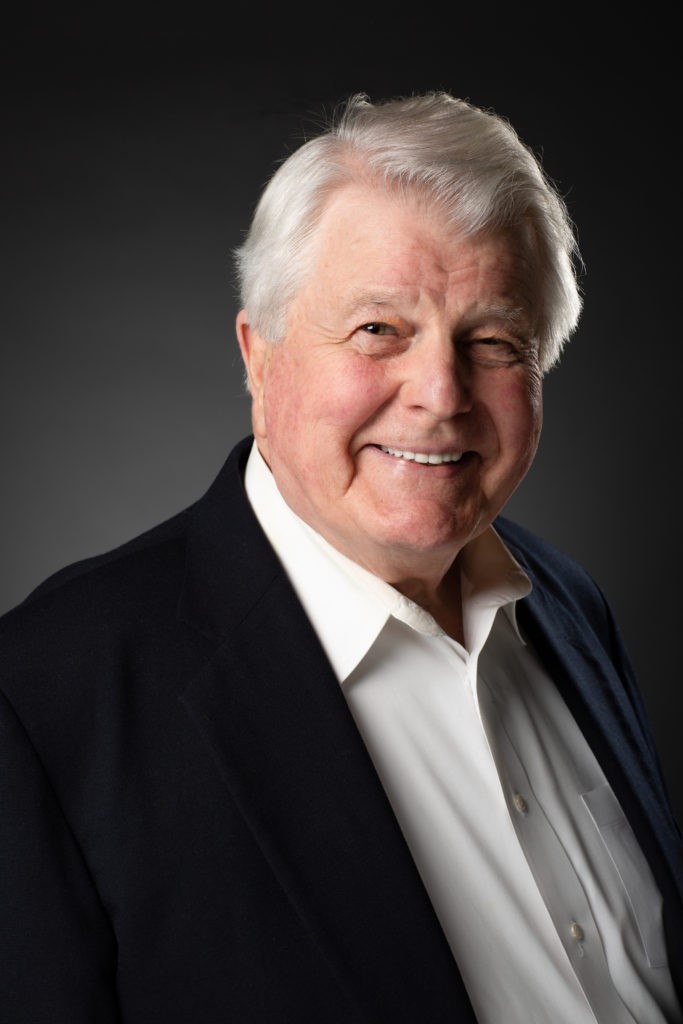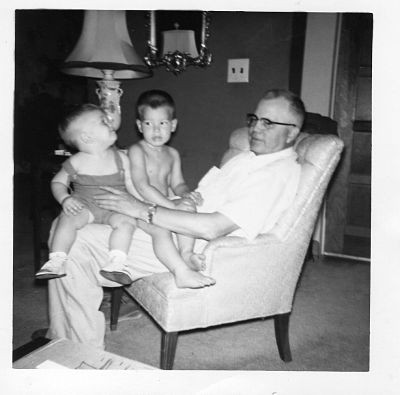Gerontologists: Creativity Increases with Age
Gerontologists say that creativity does not decline with the advance age. Oldsters have more life experience to call upon in solving problems or taking on a new venture. The only diminished mental faculty most of my 70+ friends notice is memory. Short term memory. We can remember the name our first grade teacher or the cop who arrested us for speeding the first time, but try to recall who starred in the movie you saw last week.

I thought I could fight against losing mental acuity by trying different exercises. Some may have helped, but a person simply doesn’t notice that the normal mental faculties are declining. Yes, it does take longer to figure out how the new parking meters work. And forget trying to follow technical directions. I found myself putting off integrating an internet radio receiver into my stereo system because I dreaded the task. I was convinced, before starting to work, it could not work on the first try. I was surprised when it fired right off. Then I tried to change stations. No go. Pulled out the manual, and after reading a couple of paragraphs, decided to postpone trying for a least one day. To think I once restored circuits in pre-WWII radios. It wasn’t an absence of aptitude. I am 81 years old is all.
Gerontologists usually comment on the difficulty people in their advanced years have when they are faced with a decision. They should not be pressured. They have a lot of life experience to bring to bear.
Finding Out Where You Stand . . .
A few years ago I subscribed to Luminosity, a program the challenges you with online tests and puzzles to keep different brain functions in top performing condition. I enjoyed it. Looked forward to my session every day. I was making progress and felt good about it until I plateaued. Then it became exasperating. I was competing against myself, but the program compared my performance with others in my age bracket. I was in the top 2 or 3 percent as I recall. Plateau or no plateau, I was being lumped in with everyone over the age of 70. So, what the hell, some guys in the mix were 25 years older than I. Reminds me of the old joke that the way to look younger is hang out with guys older than you.
Luminosity let me rank my score against different age brackets. What blow! Even among 60 year olds, my ranking slipped dramatically. One check on the 40 year old bracket, and I decided I really had lost a lot of my ability despite rising every morning and feeling capable of taking on any challenge the day might hold. But there was no arguing with the program. While I might still outperform a 40 year old who ranked in the lower half of his bracket, it was still a shock.
What old guys fear more than death is dementia, the slow fading away of the ability to stay in touch with reality. Years ago, when I was still working, the manager of my branch told me a client had called asking for me. I didn’t recognize the name of the caller. “You’d better go out and see her anyway,” the manager suggested. “She sounded pretty upset.”
The client lived in an apartment in a posh retirement community. She acted surprised to see me. “No,” she said looking me right in the eye, “I don’t think I called anyone. You’re from Merrill Lynch?”
When I replied that I was, she hesitated and then asked me to step into the apartment. “I may have called someone,” she said finally, “but you are not my broker, are you?”
I Once Took Care of . . .
“No ma’am. My manager said you asked for me.” The woman, who appeared to be in her mid-seventies became visibly upset.
“Isn’t this terrible,” she said almost as if she was going to cry, “I can’t remember the man in charge of my account. I thought I was asking for him. I used your name by mistake. I heard it somewhere. Oh dear. And you,” she said look up at me, “you don’t know me from Adam, do you.”
“No, ma’am,” I said smiling in an effort to show I understood. “It’s no trouble, ma’am, really. I can take back a message and work things out.”
She turned away from me, “I once took care of all of this myself,” she said, gesturing at her desk with papers arrayed on it. “I was efficient. I held an important position in management.” She turned back toward me. “You should go. I’m so sorry. I don’t remember why I called. I don’t know why this keeps happening to me. It just keeps happening to me.”
I said good-bye and let myself out into the hall where I was greeted by an older woman who did happen to be a client of mine. “Is she all right?” the woman asked.
“She seemed very upset. She didn’t know why I was there.”
“Oh dear, I mentioned your name to see if it helped her remember her person. She fades into confusion and forgets. It distresses her so. She’ll be fine a few hours and then lapse. This is the way it always goes. You get to hope people will move through it more quickly. At least then they are not as distressed. It is painful for them when they realize what is happening. Knowing they can’t do anything about it. After a while, they can’t remember being any other way, you know. Everything is goes That’s just how it works out.”
My father faded away slowly due to a series of small strokes. When my mother and my brother started reporting on his erratic behavior, I flew home to visit with him. He seemed fine. We chatted and joked, I found nothing amiss. My brother related, however, several stories about Dad blanking out. Going off for an afternoon on an errand and returning home having done nothing more than drive around town for an hour or more. He died in 1980. Once he started in decline, there was no road back for him.
No Road Back . . .

My mother-in-law lived to 104, but she was not available to anyone in the family the last few years she was alive. She did not recognize her daughters. Always a taciturn, her decline was a full withdrawal from others. She simply did not interact. My stepson, a couple of years before her death, visited her, and being very patient coaxed back to a semblance of awareness, but his interaction with her was fleeting, as if it took too much effort on her part to stay focused.
I became alarmed at my own behavior almost a year ago. I was under a lot of stress trying to get a play produced for the theater company I manage. Nothing was going right. I showed up an hour late for a meeting absolutely convinced I knew the correct time for it. The I showed up a week early for a class I was to conduct, again absolutely convinced I had the right date. My calendar, by the way, was correct in both instances. Go figure. Then one day, I found myself driving around in a neighborhood I did not recognize. I had to stop and pull up the GPS on my cell phone. That did it. I called my doctor who arranged for me to be tested. The show came off without a hitch. I passed the mental acuity test with flying colors. The stress was gone, but I learned a lot about how vulnerable I was when stress begins to mount.
Outside of my experience with my dad, my mother-in-law, and the woman at the retirement community, I have not had extended time with anyone suffering from dementia. I have read a good bit about the efficacy of the arts, especially acting, music, and dance, in delaying the onset of mental decline. Studies are very convincing.
Keeping the Intellect Engaged . . .
Right now I am preparing to play a role of an old man suffering from the disease as written by Wendy Wasserstein in her last stage play Third. I am 81, so the old role is easy, no makeup required. I rely entirely upon the playwright’s depiction of the character. He has reached a stage where he fails to recognize his daughters, hallucinates, and generally is out of touch. I have grown to love my character. I think that Wasserstein may have taken a few liberties with his frame of mind, however. At one point, he expresses sincere sorrow at being a burden to his daughter. It is very moving, but it is the first time I ever have heard of a person with advanced Alzheimer’s recognize their dependency on others.
The performing arts keep the intellect engaged. They also add a level of fun and enjoyment to that point in life where we cannot participate as vigorously in other activities. I also think it is much healthier and wise to continue to question even the most fundamental beliefs in one’s life. Once we resolve that we have all the answers about our faith, life hereafter, and the practices that assure us salvation, we spend most of our energy defending what we have already decided upon as the undisputed truth.
Faith should give us the assurance that we can question without jeopardizing our peace-of-mind. Questioning keeps the mind open. Defensive arguing simply raises the blood pressure and gives rise to anger. Anger is not good for anyone. The same can be said of politics. Defending doctrine of a red or blue position is the work of a mind already made up. Continue to question. Exercise tolerance. Avoid certainty. Listen to others. Look at the dynamics of the people who still defend Trump with all his lying, divisiveness, racism, misogyny, and erratic policy decisions. They have closed their minds to reality. If you don’t let fresh considerations enter the mind, you have already retired it. It will atrophy. Keeping exploring. It is better for you. You will live longer. Happier. Folks around you will be happier too.
I welcome your comments and stories of you own experience. Please use the area provided below to send them my way. Thanks.
